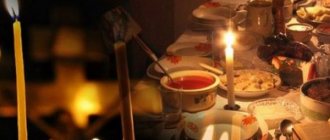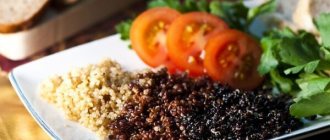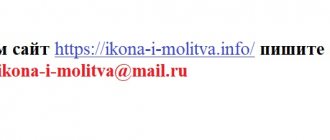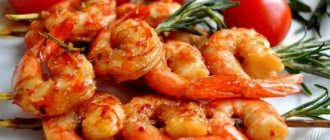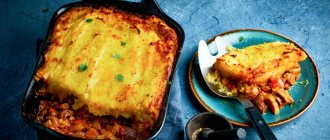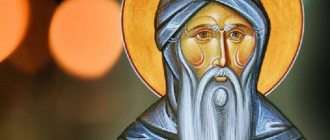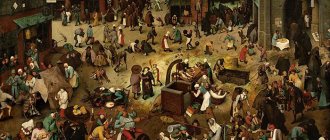What date is Lent in 2022?
The start and end dates of fasting are different every year. They depend on the date of Easter. The duration of Lent is 48 days. It begins on Monday, seven weeks before Easter and ends on Saturday, before this great holiday. In 2022 it lasts from March 7 to April 23 (inclusive).
It consists of two parts - Holy Pentecost (first 6 weeks) and Holy Week (last week - 6 days).
Each week of Lent has its own name and symbolic meaning.
Week 1 – Triumph of Orthodoxy
This week Orthodoxy honors the victory in iconoclasm. Particular respect is paid to Empress Theodora of Constantinople, who restored the veneration of icons in the church after being banned in the 8th century.
Week 2 – St. Gregory Palamas
The Church reveres this saint for his teaching and victory in theological disputes. He explained the connection between God and the world.
Week 3 – Worship of the Cross
During this period of Lent the Cross is venerated.
Week 4 – St. John Climacus
This saint is presented to all Christians as an example of fasting and spiritual life.
Week 5 – Venerable Mary of Egypt
This saint is revered because she was able to get rid of a depraved life through intense fasting.
Week 6 – Entry of the Lord into Jerusalem, Vai week
The name comes from the word “vay” - palm leaves that were used to cover the path of Christ before entering the city of Jerusalem. In Slavic countries, an alternative to palm branches is willow branches.
Week 7 – Holy Week
This week we remember the last days of the earthly life, suffering, death and burial of Jesus Christ.
What drinks can you drink?
Drinks consumed during fasting should be natural. In this case, they will not only quench thirst, but also give a boost of energy; enrich the body with vitamins.
Allowed to drink:
- compotes;
- fruit drinks;
- jelly;
- juices;
- cocoa (without adding milk);
- tea;
- almond, coconut, soy milk.
As for coffee, it can be consumed during fasting, with the exception of the period of dry eating. In general, during this time you are allowed to drink only water and tea. On other days, you can drink all of the above drinks.
Orthodox Christians are allowed to drink red, unfortified wine in moderation.
Dry eating is one of the strict degrees of fasting, a term in the monastic Rules, meaning permission to eat during fasting only such food of plant origin that cannot be cooked, uncooked food, fresh, dried or soaked vegetables and fruits. Wikipedia
What can you eat during Lent: nutritional rules
Lent is the strictest. The main food products during this period are pickles and preserves of vegetables and fruits, onions, carrots, cabbage, beets, legumes, apples, oranges, nuts, and dried fruits.
The first week they adhere to a particularly strict fast. On the first day (Clean Monday) you must completely abstain from eating. Then, from Tuesday to Friday, you can eat bread, salt, raw fruits and vegetables, dried fruits, nuts, honey, drink water (dry eating is allowed), and on Saturday and Sunday - hot food with butter.
In the second to sixth weeks of fasting, dry eating is prescribed on Monday, Wednesday and Friday, hot food without oil on Tuesday and Thursday, and hot food with butter on Saturday and Sunday.
During Holy Week they adhere to strict fasting. On all days of this week, dry eating is allowed, and on Friday you cannot eat food until the shroud is taken out.
On the church holiday of the Annunciation of the Blessed Virgin Mary (April 7) (if it does not fall on Holy Week) and on Palm Sunday (7 days before Easter) you can eat fish. On Lazarus Saturday (before Palm Sunday) it is allowed to eat fish caviar.
According to the monastic Charter, the above rules are mandatory for observance among monks. Laymen do not have to adhere to the strictness of fasting. Parishioners coordinate the nutrition calendar with spiritual mentors, taking into account all life circumstances, health conditions and body characteristics.
The article provides a calendar of the monastic Rules, which gives an idea of the degree of severity of fasting by day. Each person individually, together with his confessor, determines the degree of severity of his fast.
Who is allowed not to fast?
For physiological, medical and age-related reasons, it is better for children, the elderly, pregnant and lactating women, people with metabolic disorders, people with diabetes, people with digestive diseases, cancer patients, those suffering from kidney dysfunction, undergoing post-operative rehabilitation, people with chronic diseases and acute respiratory infections.
Reviews and results
Fasting is not a method of losing weight, but a spiritual cleansing first and foremost. Gluttony is a sin, and fasting helps to get rid of it. A believer easily endures dietary restrictions and perceives it differently. It's all about faith.
Many people use fasting for the purpose of losing weight. Do not confuse fasting, which includes much more than just food restrictions, and diet during fasting. The results are different for everyone: on average, weight loss is 3-5 kg. Most complain of weight gain due to increased appetite and consumption of mainly carbohydrate foods (potatoes, pasta, bread, cereals), which muffled the feeling of hunger.
- “... I studied all the rules of nutrition during fasting, but did not decide on strict restrictions with hunger and a raw food diet. I just cooked hot food all day, but added oil every other day. Of course, compared to what I ate before, this was a significant restriction. All day I ate various cereals, stewed vegetables or salads, to which I added butter and nuts. I cooked soups in water, but fried them, as they are tasteless without frying in vegetable oil. I liked the stewed vegetables with mushrooms. It turned out that fasting can be easily postponed if you think about all the dishes in advance and are not lazy about cooking. Since I did not pursue the goal of losing weight, I prepared dumplings with potatoes and mushrooms, pancakes with vegetables and mushrooms and other flour dishes. However, I managed to reduce my weight by 3 kg.”
- “... I decided to fast for health reasons. Constipation, bloating and discomfort in the intestines began to bother me. A table of meals helped me with nutrition, which describes everything by day. By the way, it includes not only Lent, but also Assumption, Petrov and Rozhdestven. I took this into account and will fast 4 times a year (the other three are not so strict). I cooked everything boiled, since I couldn’t eat raw vegetables due to pain and bloating in the intestines. Indeed, such restrictions helped me - after a week the stool returned to normal.”
- “... I started fasting, hoping to lose weight. Of course, if you constantly eat potatoes and bread, you will gain weight. I decided that buckwheat, vegetables, mushrooms, fruits, nuts (only a little), soy meat would become my main products. For breakfast I eat porridge with vegetables, but in moderation. For lunch - vegetable soup or stewed vegetables with soy meat or beans (lentils). In the evening, only vegetable salad with tofu cheese and nuts. Bread was sharply limited and no sweets. I eat a lot of fruit and drink juice. Sometimes I allowed myself dark chocolate (it’s without milk), because sometimes I felt dizzy. I ate soy mayonnaise, it is low in calories and I used it in salads, sometimes spread it on bread when I was really hungry. She led a normal lifestyle - work and light exercise in the gym. I can't say that everything was smooth. There were days when the feeling of hunger did not give rest, then I ate bread or Lenten pastries. I can boast that in 48 days I lost 10 kg. I agree that not everyone is like this, maybe I have such a metabolism.”
How to prepare and enter into fasting as planned
- It is better to start preparing for fasting a couple of weeks in advance. It is necessary to gradually reduce the content of animal products in the diet and increase the amount of plant foods.
- In the last week before fasting, it is necessary to create a protein depot so that the body does not experience shortages. Nutritionists recommend eating an egg and 150-200 grams of fish daily. It is better to exclude animal meat, as it is less easily absorbed by the body.
- It is necessary to accustom the body to fiber. The main diet of lean food is vegetables and fruits, which contain large quantities of fiber. Add fresh salads and snacks of vegetables and fruits to your diet every day. Oil week can help with this if you add bran or wholemeal flour to the dough for baking pancakes.
- Restore intestinal microflora. In order not to experience discomfort after changing your diet, you need to take care of your intestines - populating it with beneficial bacteria. To do this, a week before fasting, it is recommended to consume fermented milk products every day: yogurt, kefir, yogurt. These products can be prepared independently using a starter made from bifidobacteria.
- In the first days of fasting, it is recommended to increase portions and the number of meals. Lenten dishes are lower in calories. This will prevent you from feeling hungry.
- Snack on vegetables and fruits to keep you full throughout the day.
What products are allowed
Believers will have to fast for 7 weeks. But food restriction is not the most important aspect of the issue. People need to train their spirit, fight temptations, and show willpower. As for nutrition, you will have to give up a lot. But there is a list of permitted products with which you can prepare delicious and satisfying dishes.
What is allowed to be included in the diet:
- cereals;
- bread;
- dried fruits;
- legumes;
- mushrooms;
- nuts;
- vegetables;
- pickles;
- fruits;
- low-fat sauces;
- honey.
The list of permitted products is quite long. Every housewife will be able to prepare a variety of dishes and please the whole family with them.
Note!
Those with a sweet tooth can eat jam, oatmeal cookies, halva, and marmalade.
In addition, there are days of relaxation when eating fish and seafood is allowed.
Drinks you shouldn't drink
You should not consume animal products, which include milk. Therefore, all dairy drinks are prohibited during the fasting period.
Also, an Orthodox Christian should not drink:
- fortified alcoholic drinks;
- alcoholic beer.
Sweet carbonated drinks are not prohibited. But you need to keep in mind that they contain a lot of chemicals and sugar that “whet up” your appetite. Therefore, it is better not to abuse sweet soda during fasting.
Lenten recipes
Meals during fasting should be light, nutritious and healthy.
Below are recipes that will diversify the menu.
- Rassolnik : for preparation you will need pearl barley (100g), pickles (2 pcs.), carrots (1 pc.), potatoes (3 pcs.), onions (2 pcs.), laurel (2 pcs.), vegetable oil ( 2 tbsp), salt and spices (to taste).
- Buckwheat porridge with mushrooms is easy and quick to prepare; It turns out tasty and healthy. You only need a few ingredients: buckwheat (1.5 cups), fresh mushrooms (300g), onions (1 pc.), vegetable oil (3 tbsp.), salt and pepper (to taste).
- Baked apples with honey will be an excellent dessert during Lent. To prepare the sweets, you need to buy 6 large apples, liquid honey (6 medium spoons), walnuts (10 pcs.), raisins (3 tbsp.), cinnamon (0.5 tsp.). The top core of the apples is removed, crushed ingredients are placed inside, and honey is poured on top. The fruits are baked in the oven (180 °C) for 20 minutes.
The most important condition for a lean dish is the absence of meat and other animal products.
How can you replace fish in your diet?
There are several days during Lent when you are allowed to cook fish dishes.
But sometimes people do not eat church-approved foods because of an allergic reaction or other reasons. Fish contains vitamin D, which helps absorb calcium. But you can also get it by staying in the sun for 10-15 minutes 2-3 times a week.
To compensate for the deficiency of other useful elements that make up fish, you can introduce legumes, cereals or mushrooms into the diet without risk to health.
Historical reference
The Nativity fast is one of the most ancient. The first mentions of it were found in sources dating back to the 4th century. Initially, the fast lasted a week. The period of 40 days was established after the Council of Constantinople in 1166. This is exactly how long Moses fasted when he ascended Mount Sinai, where God gave him the Ten Commandments. The Church established the forty-day fast in memory of the forty-day fast of Christ.
Nevskie News / Nadezhda Drozdova
One-day posts
Epiphany Christmas Eve
January 18, 2021
Set for January 18 - the eve of the feast of the Epiphany.
During this fast you are allowed to eat only hot food with butter (regardless of what day of the week it falls on).
Beheading of John the Baptist
September 11, 2021
Set for September 11 - the day of the martyrdom of John the Baptist (baptizer of Jesus Christ).
Meat, eggs, dairy products and fish should not be taken during this fast. It is allowed to eat hot food with butter on all days of the week, except Wednesday and Friday, when only dry eating is allowed.
Exaltation of the Holy Cross
September 27, 2021
Set for September 27 - the day of the discovery of the Life-Giving Cross.
During this fast you cannot eat eggs, meat and dairy products, as well as fish. Hot food with butter is allowed (except Wednesday and Friday - only dry eating is allowed on these days of the week).
Fasting on Wednesday and Friday
Wednesday and Friday are days of strict fasting.
On these days of the week, during the winter meat-eating period (between Christmas and Great Lent) and spring (between Great and Peter's Lents), it is forbidden to eat meat and dairy products. During the summer meat-eating period (between Petrov and Assumption fasts) and autumn (between the Assumption and Nativity fasts), dry eating is prescribed.
On Cheese Week, food without meat is allowed, and on the remaining continuous weeks (Christmastide, Publican and Pharisee, Easter, Trinity) there is no fasting on Wednesday and Friday.
On Wednesday and Friday of the first week after the Week of the Publican and the Pharisee, they eat hot food without oil.
Solid weeks
Christmastide
January 7 – 17, 2021
The period from Christmas to Epiphany. Starts on January 7, ends on January 17 (inclusive). The duration of this week is 11 days. During Christmas time there is no fasting on Wednesday and Friday; you can eat meat every day.
Publican and Pharisee
February 22 – 27, 2021
Starts 21 days before Lent (Monday) and ends on Saturday. Lasts 6 days. During this week there is no fasting on Wednesday and Friday; you can eat meat every day.
Cheese (Maslenitsa)
March 8 – 14, 2021
The week before Great Lent. Lasts 7 days, from Monday to Sunday. On all these days, food without meat (eggs, fish, dairy products) is allowed.
Easter (Light)
May 3 – 8, 2021
The week after Easter. Lasts 6 days, from Monday to Saturday. During this week there is no fasting on Wednesday and Friday; you can eat meat every day.
Trinity
June 21 – 27, 2021
The week after the Holy Trinity Day. Lasts 7 days, from Monday to Sunday. During this continuous week there is no fasting on Wednesday and Friday; it is allowed to eat meat every day.
Possible problems when fasting
For a healthy person, abstaining from food is not dangerous. On the contrary, it helps cleanse the body. Problems can arise if a Christian has a chronic illness, which can worsen during fasting. Therefore, before limiting your food intake, you should consult your doctor.
Interesting! The word "fasting" is believed to be of Greek origin. It comes from the word apastia. Translated it meant “a person who does not eat anything.”
As for the spiritual side, an Orthodox Christian may experience depression, irritation, and loss of strength in the first days. The main task of a fasting person is to maintain peace of mind. At such moments, it is recommended to read prayers.
